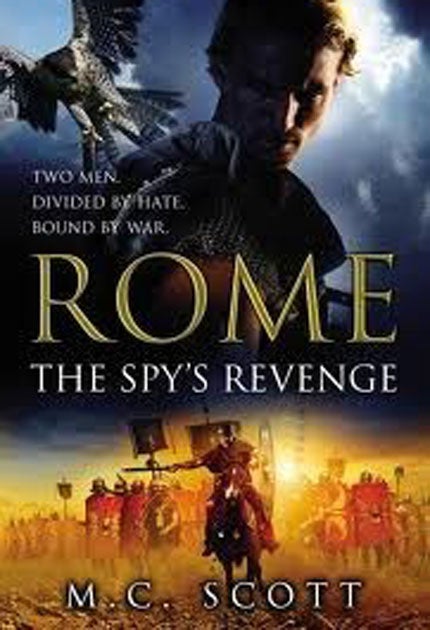Rome: the coming of the king, By MC Scott
A truly riveting return

We left Sebastos Pantera, hero of MC Scott's previous "Rome" novel, saving children from the conflagration of that city under Nero. A fellow of infinite adaptability, Pantera made his way from his native Britain to the heart of the empire which he fought. Now he travels to Judaea, which brings him into contact with those affected by certain strange events surrounding an insurrection led by a charismatic leader, who was "resurrected" after punishment.
But the mission with which Pantera has been entrusted by the spymaster Seneca involves him in a duel, both of wits and body, with the brilliant, sadistic Saulos. Pantera has a solid ally in Mergus, a Roman centurion once stationed at Colchester. Other characters are more mysterious, tightening the screw of the narrative.
The most exotic is the Berber Mistress of the Beasts, Ikhsahra. With Hypatia, priestess of Isis, she finds herself following Pantera's fortunes at the court of Herod Agrippa and Berenice. The narrative then moves to Jerusalem, where Gessius Florus, an indecisive Roman governor, has been ordered by Nero to rob the Temple of its treasure to pay for the re-building of Rome. The Hebrews are scandalised and insurrection is inevitable. Pantera learns of a great store of weapons at a fortress called Masada, and sets out to capture it.
As an author, Scott never shirks physical combat: The Coming of the King is full of good fights and battles. The other motif which weaves in and out of her work is also prevalent: the significance of the animal world, and the way in which it reflects human powers and desires. Ikhsahra is followed by a semi-tame cheetah; horses are loved companions; falcons are crucial both to spying and hunting.
Scott's method as a historical novelist is unusual and effective. She uses much archaeologically supported fact to create atmosphere but, though she has read Josephus with care, has no inhibitions when it comes to creating her interpretations.
We are so used to seeing this period through the lens of reverential Christianity that an entirely revisionary view of one of the major proponents of that religion opens our eyes to a dramatic new version of the past. But Scott's vision is not only perfectly tenable in theory; it is grippingly sustained in her fiction.
Subscribe to Independent Premium to bookmark this article
Want to bookmark your favourite articles and stories to read or reference later? Start your Independent Premium subscription today.

Join our commenting forum
Join thought-provoking conversations, follow other Independent readers and see their replies